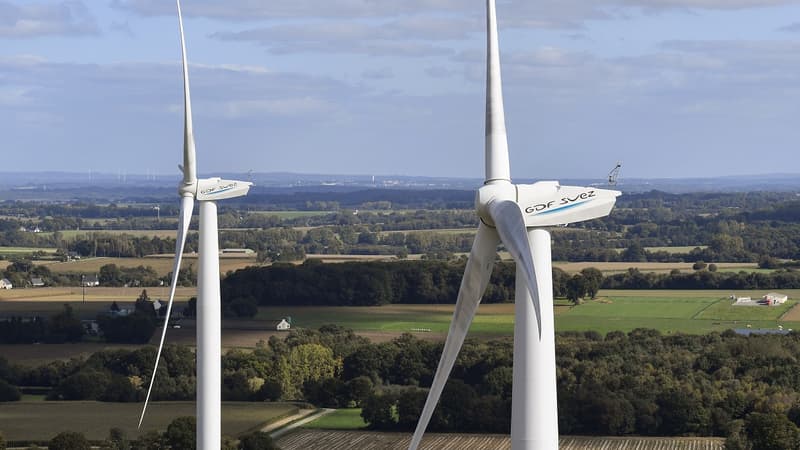The right-wing majority Senate, which has an old dispute with wind turbines, is working first from Wednesday on the bill to accelerate renewable energies (EnR), a text that Agnès Pannier-Runacher will try to approve with tweezers.
In the midst of the energy crisis, this text, which aims to bring France up to date with its great delay in renewable energies, passed the course of the commission to the chamber of the territories, with new provisions aimed at strengthening the powers of elected officials local. .
But it must still be approved in the hemicycle while the political groups are divided, to then face the arena of the National Assembly from December 5.
“It is a disaster”
“It will be difficult to agree” with the government, warned the leader of the LR deputies, Olivier Marleix.
For the rapporteur of the Senate Didier Mandelli (LR), “nobody today questions the need to develop renewable energies.” “But for this bill to get to a vote, we really have to make room for local elected officials,” he said.
Added to the difficulty is the political calendar: congress of mayors from November 22 to 24 -strategic for a Senate that will be partially renewed in the fall of 2023- and congress of republicans at the beginning of December, where the president of the senators LR Bruno Retailleau is a party presidential candidate.
“It’s a mess,” sums up a centrist senator.
“Politically it is very difficult for the opposition not to vote for this text,” said a government source. In the Assembly, “we are not going to use 49.3, we are going to refer the opposition to its double discourse”, we added.
The EnR bill is the first part of a triptych to be completed in early November with a bill aimed at facilitating the construction of six new nuclear reactors. Then, in the second half of 2023, by the next energy and climate law programming.
“right of veto”
On the form, Bruno Retailleau regrets that Parliament has to decide “by court”, without having “a general framework”.
The text presented by the Minister for the Energy Transition, Agnès Pannier-Runacher, who consulted extensively upstream, is divided into main sections: simplification of administrative procedures to reduce project implementation time, acceleration of solar and wind energy development marina, improving the local acceptability of projects.
At the initiative of the rapporteur, the senators introduced in the text “a territorial planning device” for the deployment of renewable energies, “from the territories”.
The mayors would be the first to “maneuver” to define favorable areas for the establishment of facilities.
Above all, they would have the power to “change” a project and then, in a second step, “say +yes+ or +no+” to its implementation.
In other words, they would have “veto rights.” This is the point that poses the greatest difficulty.
Regarding offshore wind power, the rapporteur wants to give priority to installation areas located at a minimum distance of 40 km from the coast. “This is not about erecting walls of wind turbines visible from our shores,” warned Bruno Retailleau.
Red line
According to environmentalist Ronan Dantec, LR is divided between “Territorial Populism Republicans and Industrial Development Republicans.”
For environmentalists, the mayors’ “veto power” is an unacceptable “red line.” “The Senate will take a position but it will jump to the Assembly,” he predicts.
“With whom do you want to build the government” this text of law, asks the leader of the environmental deputies Cyrielle Chatelain. The vote of the left is not acquired.
The goal set by President Emmanuel Macron for 2050 is to multiply solar energy production capacity tenfold to exceed 100 GW and deploy 50 offshore wind farms to reach 40 GW.
It now takes an average of five years of paperwork to build a solar farm, 7 years for a wind farm and 10 years for an offshore wind farm, according to the bill’s impact study.
Source: BFM TV


